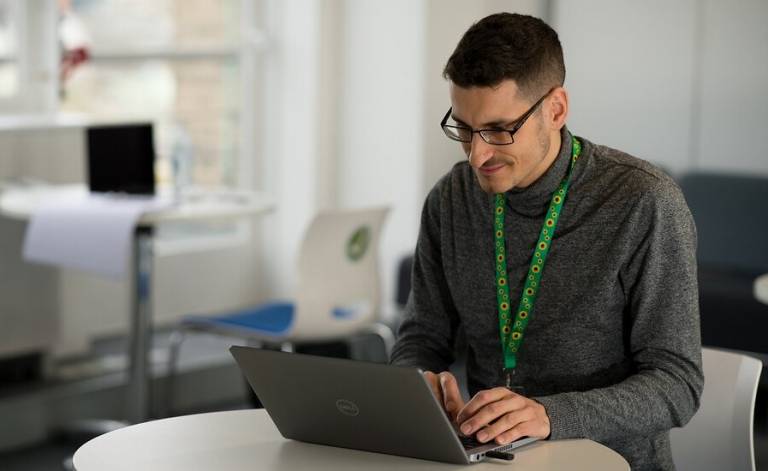E-Books: the road to the future?
7 February 2021
Library Services are leading on innovative ways to publish Open Access textbooks to support students.

One of the biggest impacts on universities during the course of the current pandemic has been the closure of physical libraries to prevent the spread of the virus. For our students, this is a real challenge because it means that access to UCL’s 2 million+ bookstock is very difficult for those in London and virtually impossible for people who are working remotely.
We have invested heavily in our online collections and now offer one of the world’s best digital collections to support students and staff during this time. However, that is where the problem begins. E-Textbooks from commercial publishers are eye-wateringly expensive. Examples librarians have given include an education textbook called An Integrated Play-based Curriculum for Young Children, published by Routledge, offered to libraries for £36.99 in print but £480 for an e-book that can only be read by one student at a time. The cost to libraries for one business studies book, Fundamentals of Corporate Business, published by McGraw Hill, was £65.99 in print and £528 as a single user e-book.
A robust article in The Guardian entitled ‘Price gouging from Covid: student ebooks costing up to 500% more than in print’ has drawn extensive coverage on Twitter and has trended on Reddit with thousands of comments. There is certainly an issue on pricing, with calls for a national investigation into the commercial E-Textbook model. The Publishers Association has (at the time of writing) declined to comment on the article.
UCL Press has made a decisive intervention to take the debate forward. With funding from UCL, the Press is investigating the construction of an E-Textbook platform where authors can publish E-Textbooks, E-Lecture Notes and other forms of educational publishing in Open Access. This would make the resulting material freely available at point of use. UCL Press also wishes to contact other Open Access presses to see if national/international collaborations would be possible to deliver a co-ordinated E-Textbook programme.
As I said in The Guardian article:
We are fed up with paying these prices when our academics are writing the textbooks. In the future, universities need to club together and take control of their own publishing.
How likely is this to be successful? The first E-Textbook which UCL Press has published is a Textbook of Plastic and Reconstructive Surgery, based on a Master’s course at the Royal Free campus. It has received 93,000 downloads and is one of the 10 most downloaded books from UCL Press. The signs, therefore, are positive.
The price of commercial E-Textbooks has been called a scandal. There needs to be both an official investigation into commercial business models and a move for universities to publish their own educational materials in Open Access. In this, UCL is ahead of the game.
Paul Ayris
Pro-Vice-Provost (UCL Library Services & UCL Office for Open Science and Scholarship)
 Close
Close

